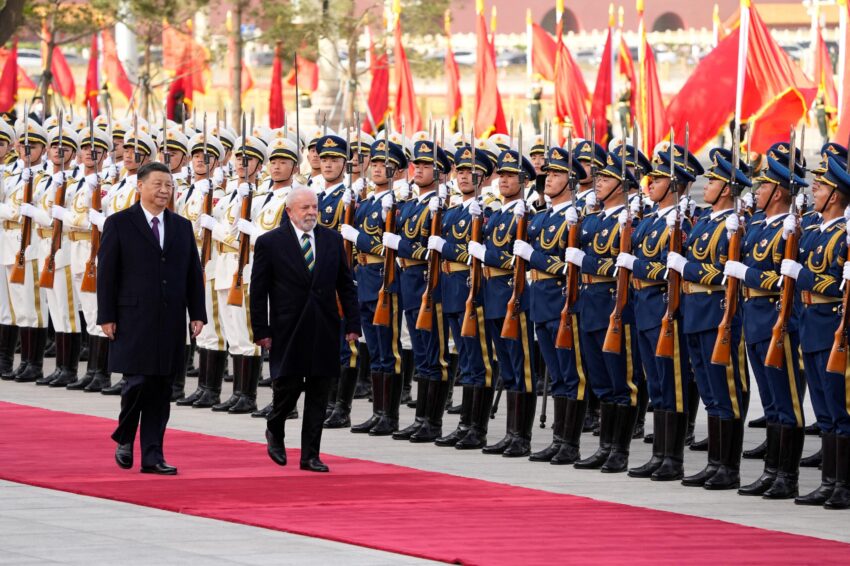Brazil’s president, Lula da Silva, met with his Chinese counterpart, Xi Jinping in China and announced new collaborations to control illegal deforestation.
China and Brazil announced this Friday a new collaborative effort to eliminate deforestation and control illegal trade causing forest loss.
In a joint statement, the countries said they “intend to engage collaboratively in support of eliminating global illegal logging and deforestation through effectively enforcing their respective laws on banning illegal imports and exports”.
Brazilian President Lula da Silva met with his Chinese counterpart Xi Jinping during a visit to China, in a bid to strengthen ties. China is Brazil’s largest trading partner and a major importer of commodities such as soy and crude petroleum.
Both countries added they will cooperate with satellite information, “which will enable enhanced monitoring”. China and Brazil share the CBERS satellite program, which made its first launch back in 2001.
Cyntia Feitosa, international relations advisor at the Brazilian think tank Instituto Clima e Sociedade, said the joint statement was “a very good signal”, but warned there’s still questions about how it would be put into practice.
“It would be very good to see some joint traceability strategy, for example, to avoid the export of any product that has deforestation in its supply chain,” Feitosa said.
A 2019 report by the Brazilian NGO Amazon Watch showed that companies charged with environmental crimes in the Amazon were still able to export their products to the international market, in particular to Brazil’s three main trading partners — China, the EU and the US.
Climate leadership
With the arrival of Lula da Silva to Brazil’s presidency, the country resumed its efforts to influence global climate action. Da Silva also retook a closer relation with China, which at times was tense under the last government of Jair Bolsonaro.
Both countries now agreed to establish a Subcommittee on Environment and Climate Change and support Brazil’s bid for Cop30. Back in January, Da Silva expressed his desire to host the UN climate talks in Belem, th
Read More

